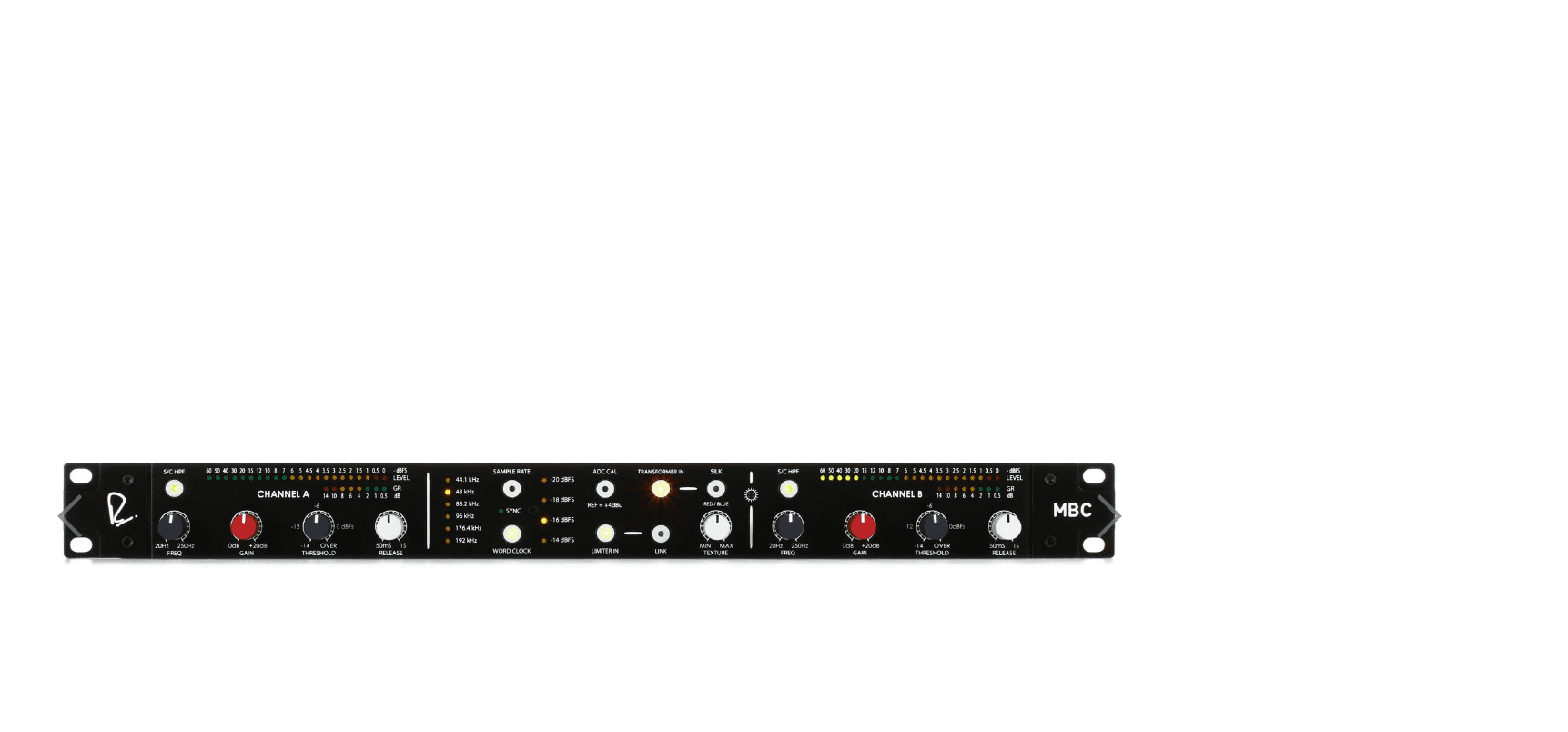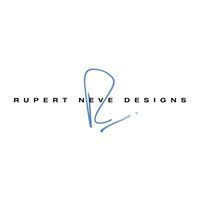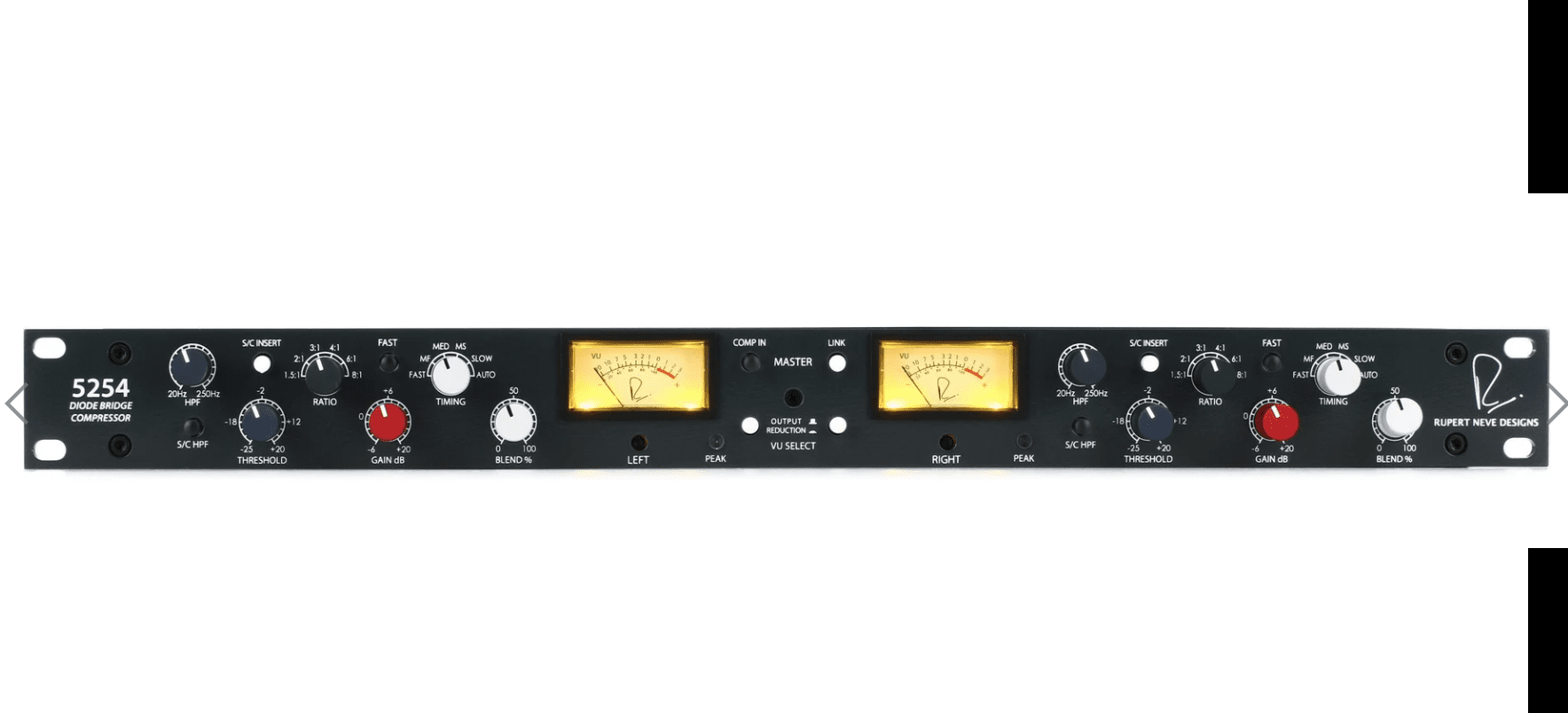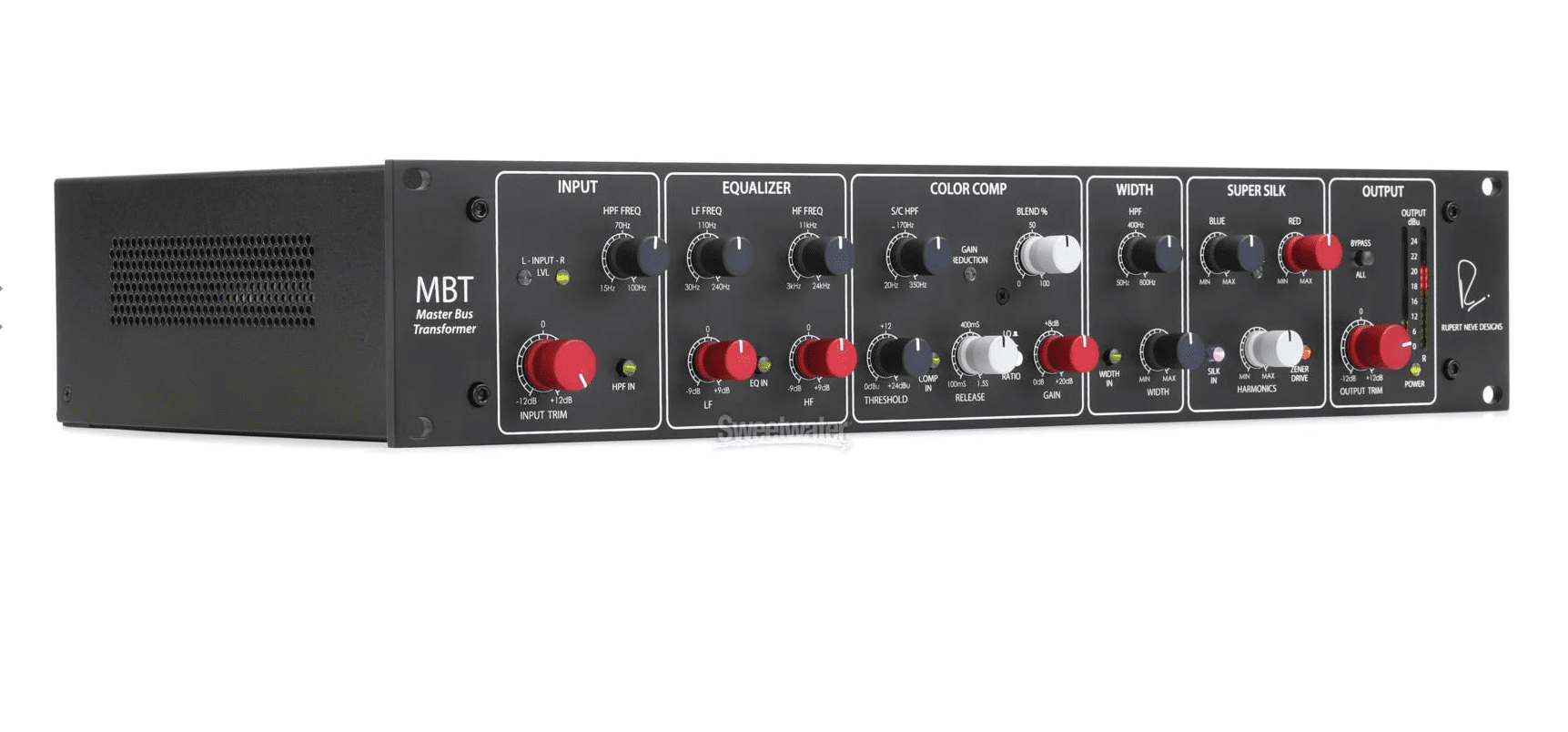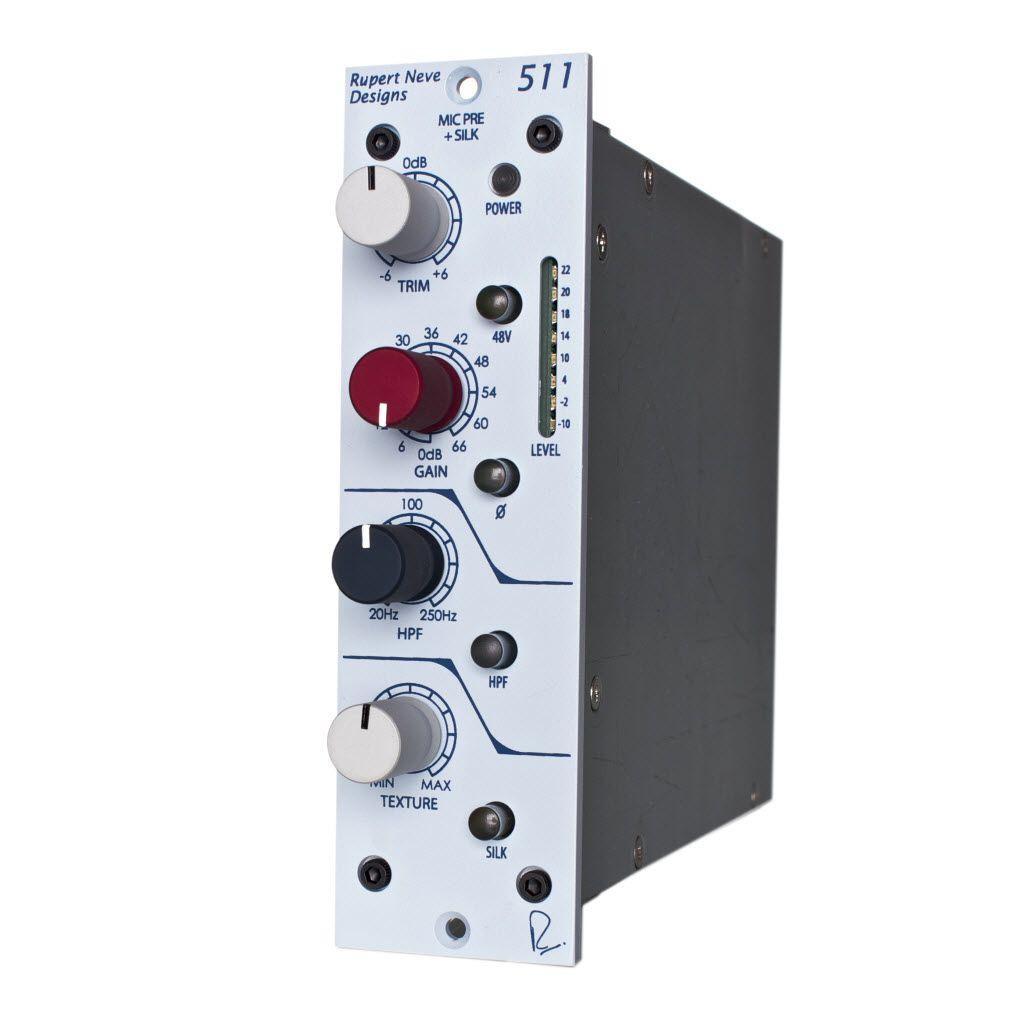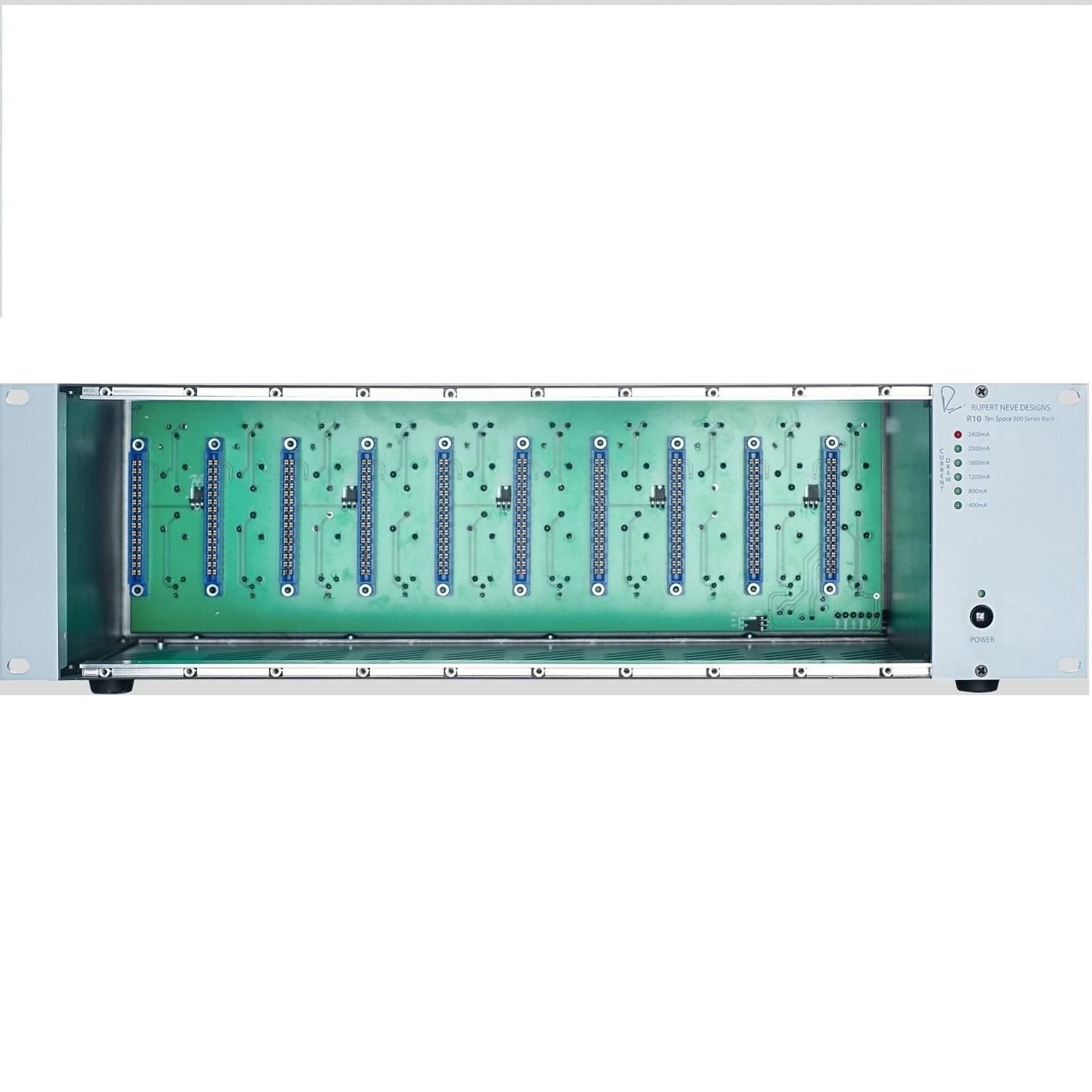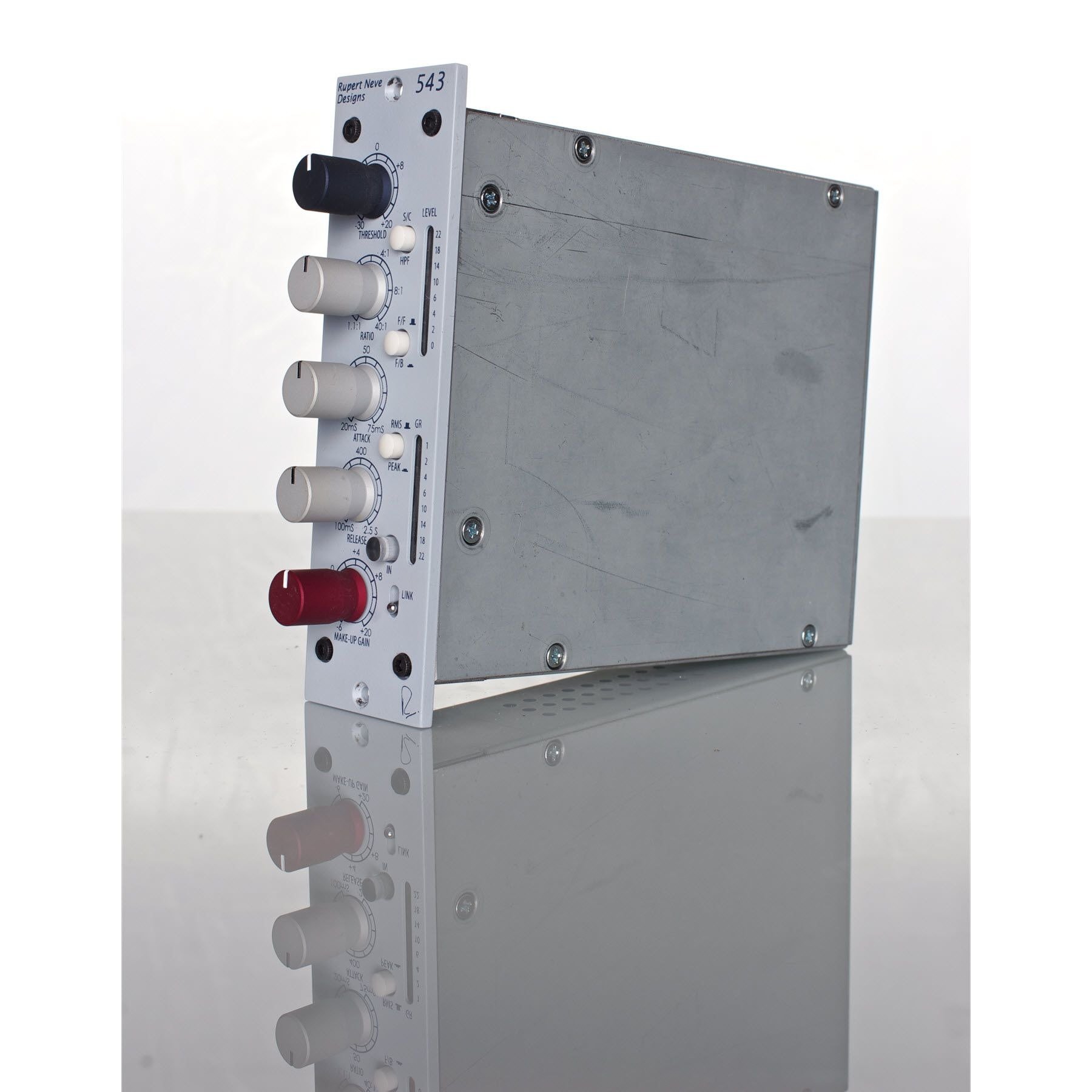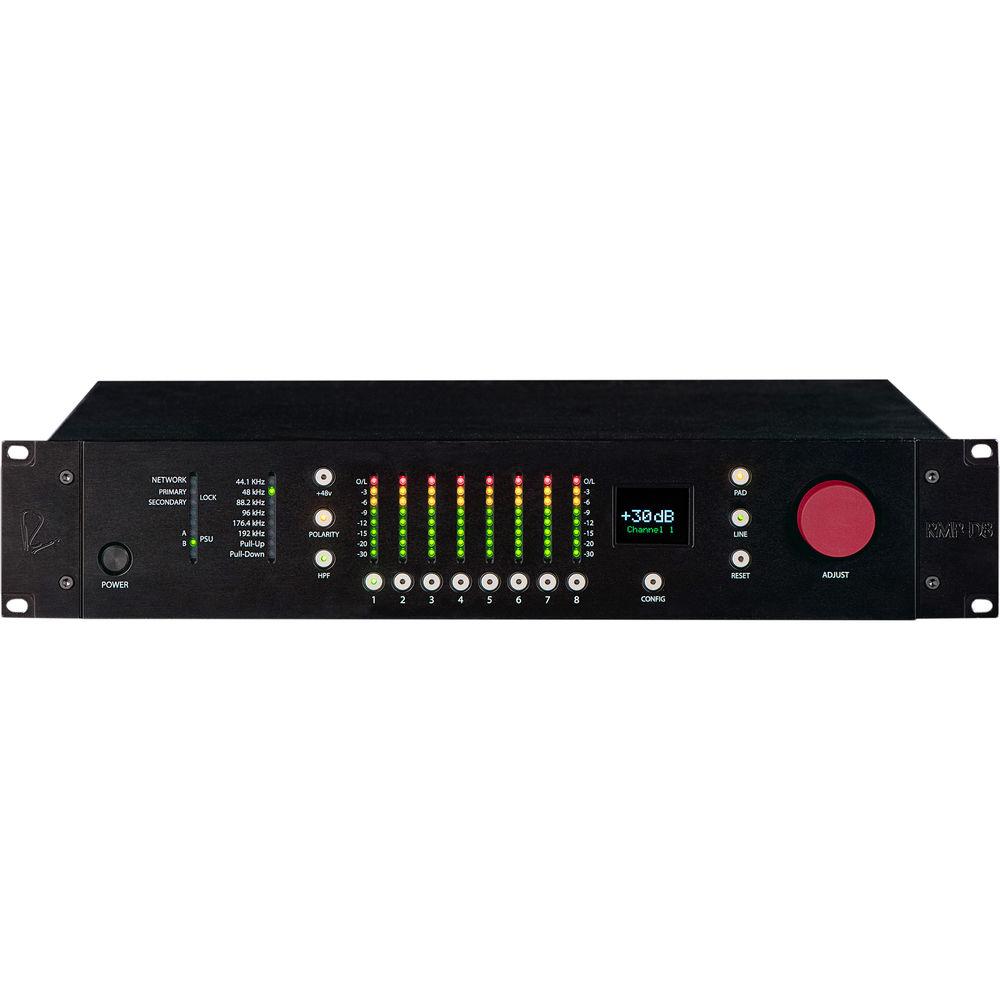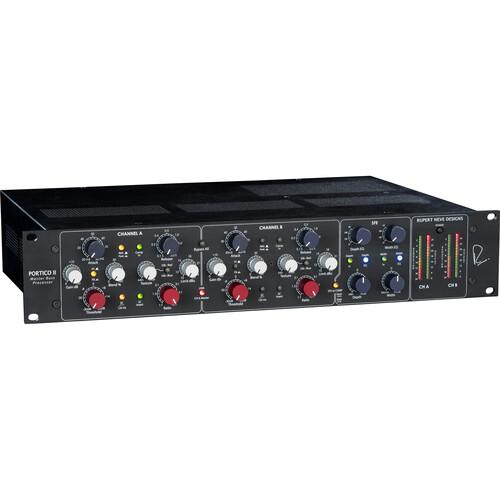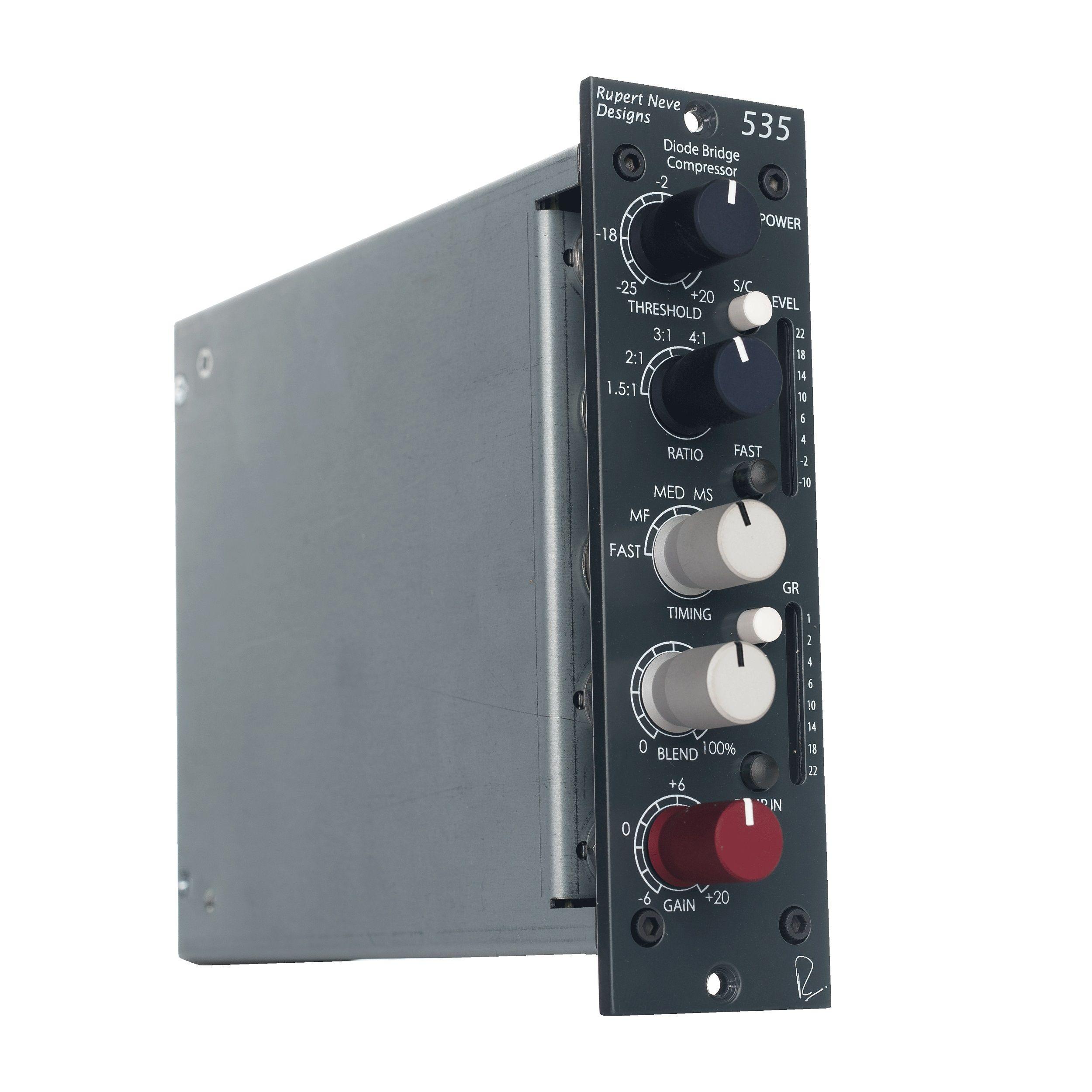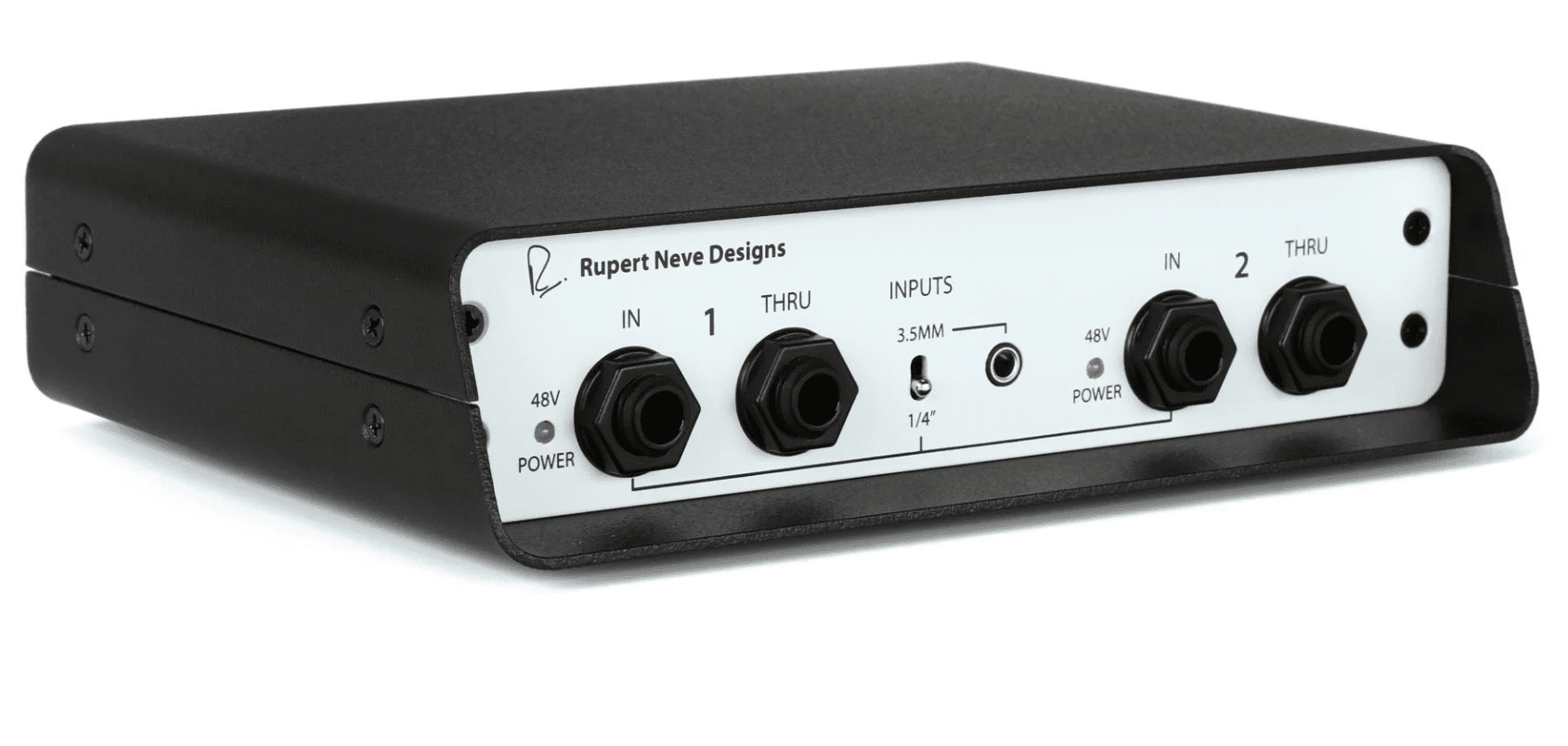Rupert Neve Designs MBC 2-channel Dual-path A/D Converter/Limiter Features:
- 24-bit/192kHz Reference Conversion for unequaled analog capture
- Selectable analog drive paths: Class A transformer-less or custom transformer-coupled
- Class A transformer-less path maximizes clarity and transparency of the input signal
- Transformer path with proprietary Silk Texture processing adds warmth, weight, and punch
- Active Compound Release limiting for hotter levels with minimal artifacts, plus clip safety for tracking or broadcast
- Precision clocking using state-of-the-art chip set for ultra-low jitter and phase noise
- 2 balanced analog XLR inputs
- AES, TOSlink, and coax S/PDIF digital outputs available simultaneously
- Word clock I/O on BNC connectors
- Level and Gain Reduction LED meters
- Rear-panel meter Peak Hold adjustments
The Neve of Master Bus Converters
Rupert Neve Designs’ Master Bus Converter (MBC) sets a new standard for reference-grade 24-bit/192kHz A/D conversion technology. It also incorporates RND’s latest Active Compound Release Analog Limiter, which lets you drive hotter levels with fewer artifacts than plug-ins and ensure clip safety for tracking or broadcast. Indispensable for tracking, mixing, and mastering, the 2-channel Master Bus Converter incorporates proprietary Rupert Neve analog drive circuitry that lets you choose whether the converter is fed by a Class A transformer-less path for unprecedented transparency or by custom inter-stage audio transformers with variable Silk Texture for a wide range of tonal color. Equipped with precision clocking for vanishingly low jitter and phase noise, the MBC makes a perfect master clock, and, of course, can be synced to another source. With its state-of-the-art conversion and gorgeously musical limiter, Rupert Neve Designs’ MBC is an ideal choice for capturing your analog signals with unerring accuracy and stunning 3-dimensional detail.
Related Videos: MBC Dual-path A/D Converter & Limiter
Selectable analog drive paths
A unique, defining feature of the MBC is its two selectable analog drive paths, which give you a choice between vintage and modern sonic signatures, depending on how the converter is fed. The Class A transformer-less path is stunningly transparent, while a press of the Transformer In button engages a custom transformer-coupled path that delivers the legendary warmth, weight, and punch of Rupert Neve’s classic designs from the Golden Age of Analog, optimized to contemporary cutting-edge performance specifications. This gives the Master Bus Converter incredible versatility: the best of vintage and modern, at the touch of a switch.


Variable Silk Texture
The Master Bus Converter is packing a secret weapon: variable Silk Red/Blue Texture controls — made famous in the Portico II Series — that let you tailor the harmonic content and tonality of the transformer path. By engaging these controls, you can dial in delectable 2nd- and 3rd-order harmonic distortion (the desirable kind) and saturate the transformer, imbuing your tracks with juicy rich thickness with no danger of overloading the output stage. The Silk Red mode emphasizes harmonic content generated by the source’s high frequencies; Blue mode, conversely, works off the low frequencies. The Texture knob controls the amount of added harmonic content. Disengage Silk, and your output is pristine and modern, while retaining Rupert Neve’s larger-than-life custom transformer sonic signature.
Active Compound Release Limiter
The analog limiter in the MBC features a proprietary intelligent Active Compound Release curve that takes the worry and guesswork out of prepping your masters for professional distribution. Virtually foolproof, RND’s Active Compound Release Limiter lets you push your levels more aggressively without the distortion artifacts typically generated by dynamics plug-ins under similar circumstances. This gracious behavior means you can set it and forget it, with the added security of knowing your masters will be free from clipping and broadcast-ready. What’s more, the limiter is equipped with a switchable sidechain highpass filter that eliminates undesirable low frequency compression artifacts.

The legend continues
Rupert Neve’s 80 Series consoles had a huge, punchy, and authoritative sound that defined the sound of ’70s rock. From London to New York to Los Angeles and beyond, top studios were installing Neve boards as fast as they could. By 1977, with the introduction of the NECAM automation system, 80 Series boards were the main component of the success formula for any recording studio with world-class aspirations. Mr. Neve’s current company, Rupert Neve Designs, continues to advance the state of the art with cutting-edge products that sound incredible and intelligently address the challenges of the digital age. With your Rupert Neve Designs MBC from Sweetwater, the legend continues.

